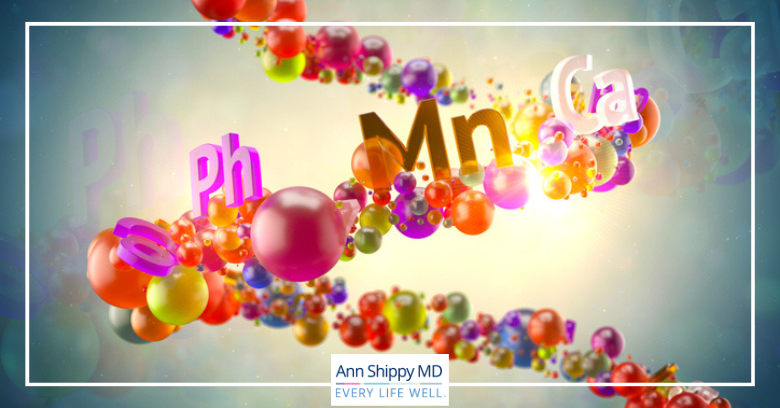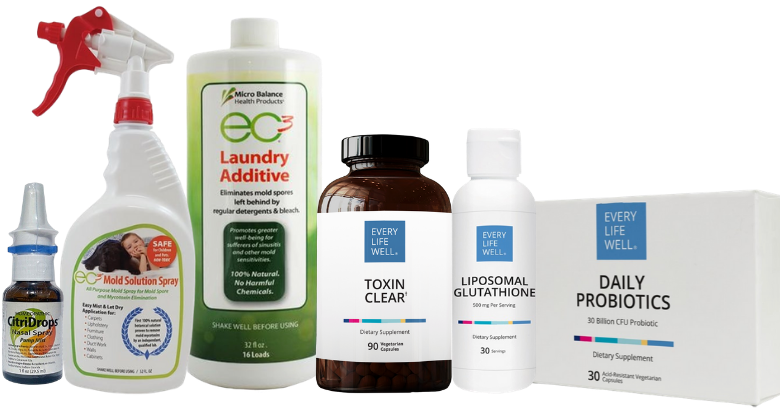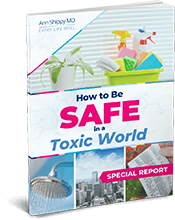The Importance Of Minerals For Your Health – Wound Healing, Immunity, Pregnancy
You probably know that you need minerals in your diet for optimal health and wellness.
But our modern diets (and our soil) are not as rich in minerals as they once were, so in my practice I see that often patients are not getting enough of the minerals they need and have low levels of essential nutrients.
This article will discuss minerals as a group and individual minerals to pay attention to.
Keep reading to learn more about:
- What minerals are important
- The functions of minerals in the body
- The role of minerals in tissue healing and immunity
- The essential minerals and Paleo food sources
- Mineral deficiencies
- How to improve mineral status
What Are Minerals?
Minerals are inorganic elements that come from the earth. They are found in soil, food, and water.
Living organisms can’t make minerals but circulate through plants and animals. Plants take up minerals from the soil, and animals eat the plants.
Humans get minerals from both plant and animal sources.
The mineral content of food will vary widely depending on where the food comes from and the conditions in which it was grown.
You can’t have mineral-rich food without mineral-rich soil.
Mineral Functions
Minerals serve many functions in the body, including:
- Nutrient cofactors required for regulation of body functions via enzymes, hormones, and other molecules
- Regulation of gene expression (epigenetics)
- Bone structure
- Muscle and nerve function
- Regulation of fluid balance
- Immune resilience
- And more!
Let’s look at new research on some of these functions:
Minerals and Tissue Healing
New research suggests that minerals support body tissue regeneration and wound healing.
Mineral nanoparticles (called nanosilicates) composed of magnesium, lithium, and silicone make their way into cells easily and dissolve into individual minerals.
When they enter stem cells, they shift gene expression toward that stem cell, turning into bone and cartilage cells.
Since we know that minerals are essential for the growth and development of children, this new technology and targeted nutrition may lead to advances in tissue regeneration and other areas of medicine such as drug delivery and immune system support.
In a related application of minerals for wound healing, minerals are being used in the dressing materials used to cover and protect wounds while they heal.
Minerals including clay minerals, zeolites, and silica in the dressings lead to the growth and repair of tissues while preventing infection.
Minerals and Immunity
Minerals are essential for immune function and the management of inflammation.
Deficiencies in specific minerals correlate with reduced immunity, unchecked inflammation, or increased susceptibility to infection.
In some cases, too much of a mineral, such as iron, may harm immune function.
Here are some examples of key immune minerals and the role they play:
- Magnesium – Critical for immune cell function, immune regulation, and a cofactor for vitamin D metabolism
- Zinc – An antioxidant involved in immune regulation, both innate and adaptive immunity, and prevention or reduced duration of infections
- Copper – Involved in innate and adaptive immunity and the maturation of immune cells
- Iron – Required for blood cell formation and host defense
- Selenium – Essential for the regulation of inflammation and immunity
Because minerals are essential for life, we call them essential nutrients, and we must obtain them from our food. Heavy metals are also minerals, but these are harmful to health.
Essential Minerals And Paleo Food Sources
Minerals fall into two categories: macrominerals and microminerals.
The macrominerals are minerals we need large amounts of in the diet, typically milligrams or grams.
The microminerals, or trace minerals, require only small amounts from the diet, in micrograms to milligram amounts.
Here is a list of essential minerals and whole food, Paleo food sources for each:
Macrominerals:
- Magnesium – Avocado, almonds, raw cacao, pumpkin seeds, cashews, Brazil nuts, bananas, kale, chard, spinach, mizuna, and other dark leafy greens
- Calcium – Bone broth, almonds, tahini, fish with bones (such as canned salmon), seaweed, bok choy, collard greens, broccoli, citrus fruit
- Sodium and Chloride – sea salt, celery, olives, beets, fermented vegetables
- Phosphorus – Chicken, turkey, eggs, fish, pork, Brazil nuts, pistachios, pine nuts, sunflower seeds
- Sulfur – Eggs, beef, poultry, onions, garlic, cabbage, cauliflower, turnips, hemp seeds
- Potassium – Avocados, mushrooms, sweet potato, potato, winter squash, banana, mango, beets, spinach, parsnips, coconut, coconut water
Microminerals:
- Chromium – Beef, shellfish, turkey, pork, apples, green beans, lettuce
- Iron – Red meat, liver, shellfish, spinach, kale
- Zinc – Oysters, beef, crab, pork, chicken, pumpkin seeds, cashews
- Selenium – Brazil nuts, fish, pork, shrimp, beef, chicken, egg
- Copper – Liver, oysters, seafood, raw cacao, potatoes, mushrooms, cashews
- Manganese – Mussels and other shellfish, hazelnuts, pecans, spinach, pineapple
- Boron – Avocado, dried fruit, peaches, apples, oranges
- Iodine – Fish, seafood, seaweed, eggs, liver
- Molybdenum – Liver, potato, banana, chicken, eggs
Mineral Deficiencies
Minerals available throughout the food chain have become depleted due to modern agricultural practices, like the use of glyphosate and other chemicals, and that we don’t replace minerals or encourage biodiversity of the organisms responsible for mineral abundance in the soil.
From this perspective, we are all at risk of mineral deficiencies, even if we eat a nutrient-dense whole food diet.
The risk for mineral deficiencies may increase because of:
- Diet high in processed food. The processing of foods strips the minerals away.
- Chronic illness which depletes minerals and increases the need for them.
- Advanced age. As we get older, we may eat fewer minerals and be less efficient at absorbing them.
- Poorly planned vegetarian, vegan, or other restricted diets, even a poorly planned Paleo diet which limits or eliminates certain minerals from the diet.
- Intense training. Athletes are more prone to mineral depletion with loss of electrolytes.
- Pregnancy. During pregnancy, the need for minerals increases.
Levels of essential minerals tend to decrease in women during pregnancy, and many don’t consume an adequate diet to provide for increased nutrient needs.
Nutrient deficiencies during pregnancy, including deficiencies in minerals such as calcium, iron, magnesium, selenium, zinc, and iodine, increase the risk of pregnancy complications and infant health issues.
For example, 28% of pregnant people experience iron deficiency anemia in the third trimester.
Mineral supplementation helps maintain optimal levels in pregnancy, which is why prenatal vitamins and minerals are recommended; however, many prenatals on the market don’t contain adequate amounts of minerals.
Mineral supplements taken during pregnancy reduces the risk for anemia, high blood pressure, gestational diabetes, and miscarriage in pregnant women.
In infants, maternal supplementation reduces the risk of asthma, autism, cerebral palsy, intellectual disability, low birth weight, and neural tube defects.
How To Increase Minerals To Support Health
Minerals are essential to health, but many of us aren’t getting enough because of our diet, depleted soils, and other factors. Here are some ways to increase minerals:
- Up your nutrition game. Add additional mineral-rich foods to meals and snacks. Some favorites include:
- Bone broth and mineral broths
- Seaweed
- Nuts and Seeds
- Organ meat
- Extra veggies
- Increase variety. Eating a diverse diet will help ensure you are getting the minerals you need. In addition to the variety with the individual foods you consume, consider obtaining that food from a variety of sources or brands so you are eating food coming from different soils.
- Soak nuts and seeds. While nuts and seeds are often high in minerals, those minerals may be bound up in fiber or phytates. Soaking or sprouting nuts and seeds increases the bioavailability of the minerals they contain.
- Trust organic and regenerative agriculture. When farmers take good care of their soil and focus on regeneration, the food they grow and raise will be denser with minerals.
- Optimize gut health. Just because you are eating minerals doesn’t mean they are getting absorbed. Make sure your digestion is on point to benefit from the mineral-rich foods you are eating.
- Test nutrient levels. Work with your Functional Medicine provider (or self-order tests) to discover what nutrient levels are low. You can use this information to personalize your diet and supplement routine.
- Use mineral supplements. Supplements are an excellent way to fill in any mineral gaps you may experience. During the reproductive years and pregnancy, take a comprehensive prenatal vitamin, such as Every Baby Well Prenatal Pure Packs. During other times of life, a multivitamin is a good nutrient insurance policy. In addition, most people benefit from additional magnesium.
- Consider starting your own garden and composting. Properly composted organic material is rich in nutrients and trace minerals.
On one hand, minerals are a basic aspect of nutrition, but on the other hand, they are foundationally crucial for optimal health.
Given the decreasing mineral levels in food and periods of life where we need to be ingesting more minerals, implementing some of these solutions is a wise choice.
Consider doing functional medicine testing to know what your mineral levels are on an annual basis.
References:













